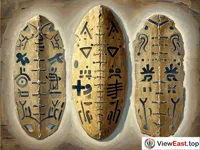

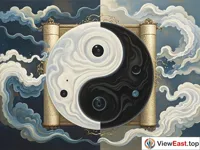
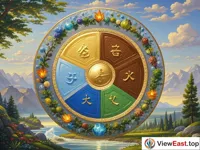
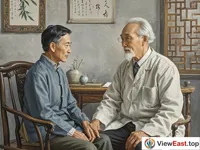
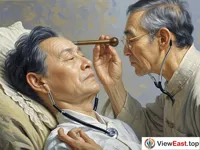
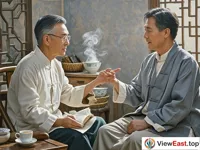
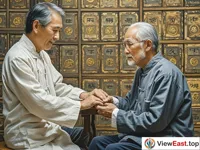
Chinese traditional medicine, or Han medicine, is an integral part of Han Chinese culture, embodying a holistic approach to health and wellness that has been developed and refined over thousands of years. It represents a unique system of medical practice that is deeply rooted in the cultural and philosophical heritage of the Han Chinese people.
Historical Foundations
The roots of Han Chinese medical philosophy can be traced back to ancient times, with early records of medical practices appearing in oracle bone inscriptions during the Shang Dynasty. The systematization of these practices culminated in the "Huangdi Neijing" (The Yellow Emperor's Inner Canon), which laid the theoretical groundwork for the practice of traditional Chinese medicine.
Theoretical Principles
Central to Han medicine is the concept of Qi, the vital energy that flows through all living things, and the balance of Yin and Yang, which are opposing yet complementary forces believed to make up the universe. The Five Elements theory further explains the dynamic relationships between various aspects of life and the natural world. These theories guide the diagnosis and treatment of illnesses, emphasizing the body's innate ability to heal itself when these energies are in harmony.
Holistic Approach
Han medicine takes a holistic approach to healthcare, considering not only the physical symptoms of an illness but also the emotional and spiritual well-being of the patient. This comprehensive view recognizes the interconnectedness of all aspects of life and the importance of maintaining balance in all areas for optimal health.
Diagnostic Methods
Diagnosis in Han medicine is based on the "Four Examinations": inspection, listening and smelling, inquiry, and palpation. These methods allow the practitioner to assess the overall condition of the patient and identify imbalances that may be contributing to illness.
Treatment Modalities
Treatment in Han medicine is diverse and may include herbal remedies, acupuncture, massage (Tuina), dietary therapy, and exercises such as Qigong and Tai Chi. Each treatment is tailored to the individual's specific needs, with the goal of restoring balance and promoting the body's self-healing capabilities.
Cultural Significance
Han medicine is not just a system of healthcare; it is also a cultural treasure that has shaped Han Chinese society and influenced other cultures around the world. It reflects the Han Chinese people's respect for nature, their philosophical understanding of the universe, and their belief in the interconnectedness of all things.
Global Impact
Today, Han medicine continues to gain recognition globally for its effectiveness in treating various conditions and for its holistic approach to health. It has contributed to the development of integrative medicine and has inspired a deeper exploration of the mind-body connection in Western medical practices.